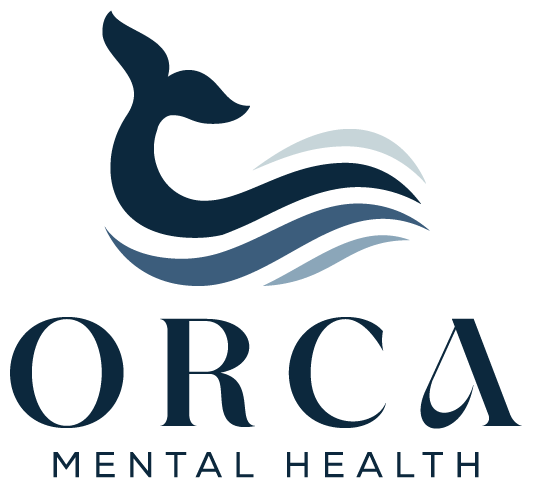Anxiety Treatment in San Diego
If you’re looking for men’s anxiety treatment in San Diego, contact ORCA to learn about our programs.
- Home
- What We Treat
- Anxiety
Dedicated to providing comprehensive, individualized care
- Our Program
San Diego Anxiety Treatment
Anxiety is not just a fleeting feeling of worry; it’s a pervasive condition that can deeply impact one’s day-to-day life, affecting everything from personal relationships to professional performance. For men, the experience and expression of anxiety come with additional challenges, largely due to societal expectations that demand toughness and emotional restraint. At ORCA Mental Health, we specialize in addressing these unique challenges through dedicated anxiety disorder treatment in San Diego tailored for men, focusing on not just managing symptoms but fundamentally transforming lives.
- Learn More
Understanding Anxiety in Men
Anxiety among men is often underreported and underdiagnosed, overshadowed by the pervasive cultural expectation that men must remain strong and stoic even in the face of personal turmoil. One study found that nearly one in ten men in the United States experience some form of depression or anxiety, however less than half of them get treatment. Societal norms can make it challenging for men to acknowledge their struggles and seek help, resulting in a significant barrier to effective anxiety treatment.
The manifestations of anxiety in men can be quite diverse, ranging from the more recognized symptoms like excessive worrying and tension to less obvious signs such as irritability, increased anger, and controlling behavior. Physical symptoms might also be more pronounced, including muscle tension, headaches, and gastrointestinal problems, which men are more likely to report than emotional distress due to the stigma associated with mental health issues.
Furthermore, men may engage in behavior that masks their anxiety, such as increased alcohol consumption, drug use, or excessive working. These actions are often socially acceptable ways for men to cope with stress and emotional pain, yet they contribute to the cycle of anxiety without providing real relief.
At ORCA Mental Health, we focus on breaking down the barriers to recognition and treatment by fostering an environment that respects the unique challenges men face. Our approach to anxiety treatment helps men to acknowledge their anxiety without judgment, understand its roots, and explore its impact on their lives in a confidential setting.
By addressing these issues directly, Oceanside Mental Health aids men in navigating their way through anxiety with dignity and resilience, encouraging them to redefine strength not as the absence of vulnerability, but as the courage to confront and manage their mental health proactively.
- ORCA Mental Health
Individualized Approach to Anxiety Therapy in San Diego
If you are searching for men’s anxiety treatment in San Diego, consider ORCA Recovery Centers and Mental Health. We specialize in mental health treatment for men. Contact us today to learn more about anxiety therapy in San Diego.
- Understand more
Causes of Anxiety in Men
Understanding the causes of anxiety is crucial for effective treatment and management. Anxiety in men can stem from a variety of sources, each interplaying uniquely with individual life circumstances and personality traits. Here, we explore several common causes of anxiety that affect men, highlighting the complexity and diversity of this condition.
Research suggests that anxiety can have a genetic component, making some men more predisposed to anxiety disorders than others. This genetic tendency means that anxiety can sometimes run in families, passed down through generations.
Changes in brain chemistry, hormonal fluctuations, and underlying medical conditions can also trigger anxiety. For instance, disorders of the thyroid gland, heart diseases, or diabetes can exacerbate or mimic symptoms of anxiety, creating a complex health scenario that needs careful management.
Significant life events such as the death of a loved one, divorce, job loss, or major financial troubles are potent triggers for anxiety. The pressure to meet societal expectations of success and stability can particularly impact men, who often feel they must uphold a role as provider and protector.
High-pressure work environments, long hours, and job insecurity can contribute significantly to anxiety. Men often experience substantial stress from their careers, especially in highly competitive fields or jobs with high physical and emotional demands.
Difficulty in personal relationships, whether with a spouse, children, friends, or other family members, can be a significant source of anxiety. Emotional disconnect or unresolved conflicts can exacerbate feelings of anxiety and inadequacy.
Men may use alcohol or drugs as a way to self-medicate for anxiety. However, substance use can aggravate anxiety symptoms and even lead to dependency, creating a vicious cycle that can be difficult to break.
Men are often conditioned to suppress their emotions, which can lead to a lack of emotional awareness and expression. This suppression can manifest as anxiety, as men struggle internally with their feelings without adequate outlets for expression.
Certain personality traits, such as perfectionism or a tendency towards excessive control, can predispose individuals to anxiety. Men with these traits often place unreasonable demands on themselves, which can lead to anxiety when they perceive their efforts as never good enough.
- What to Look For
Challenges Men Face with Anxiety
Culturally, men are often expected to be the stoic providers, a role that leaves little room for admitting struggles with mental health. This stigma can prevent men from seeking help, leading to a worsening of symptoms and a deeper entrenchment of anxiety. ORCA Mental Health is dedicated to breaking down these barriers by promoting mental health awareness and providing a safe space for men to learn and practice new coping strategies. Our anxiety treatment programs are designed to address men’s specific mental health needs, helping them navigate their way out of the isolation that anxiety often creates.
- The Importance of Getting Help
Types of Anxiety Disorders Affecting Men
GAD is characterized by chronic, excessive worry about everyday activities and events, often to the point where daily life becomes a series of concerns and fears. Men with GAD may struggle to control their worry, even when they realize it’s more intense than the situation warrants.
This disorder involves sudden, intense episodes of fear that trigger severe physical reactions without a real danger or apparent cause. Panic attacks can be very frightening, making individuals feel like they’re losing control, having a heart attack, or even dying. Men may be reluctant to discuss these experiences due to fear of appearing weak.
Also known as social phobia, SAD involves an intense fear of social situations in which one may be judged, worry about embarrassing oneself, or concern about being humiliated. This can make everyday social interactions very stressful and may lead men to avoid social situations altogether.
These are intense, irrational fears of specific objects or situations, such as heights, flying, or spiders. Phobias can provoke panic attacks in response to the specific object or situation. Men with phobias might go to great lengths to avoid their triggers, which can restrict their lives significantly.
OCD is characterized by unwanted repetitive thoughts (obsessions) and/or actions (compulsions) that seem impossible to stop or control. For men, acknowledging these thoughts and behaviors can be particularly challenging due to stigma or misunderstanding about the disorder.
Agoraphobia involves a fear of places or situations where escape might be difficult, or help unavailable, particularly when having a panic attack. This can mean avoidance of wide-open spaces, crowded places, public transportation, and even leaving one’s home.
- What We Offer
ORCA Mental Health’s Approach to Anxiety Treatment
At our San Diego anxiety treatment center, we believe effective treatment must be tailored to the individual. We offer a range of therapeutic modalities, each chosen for its proven effectiveness in treating anxiety. These are integrated into a personalized treatment plan developed in close collaboration with each client, ensuring that each man’s unique circumstances and needs are addressed.
Cognitive Behavioral Therapy (CBT)
CBT is particularly effective in treating anxiety by helping clients identify and challenge destructive thought patterns and behaviors. This therapy focuses on practical strategies for managing distressing situations, aiming to change the underlying attitudes that contribute to anxiety.
Group Therapy Sessions
Group therapy provides a platform for sharing experiences with others who face similar challenges, fostering a sense of community and reducing feelings of isolation. Our male-only group sessions are led by experienced therapists who facilitate discussions in a supportive and confidential environment.
Mindfulness and Stress Reduction Techniques
We also emphasize the importance of mindfulness techniques, which encourage men to focus on the present moment rather than becoming overwhelmed by anxieties about the future. Techniques such as deep breathing, meditation, and yoga are integrated into treatment plans to help men develop tools for calming the mind and body.
Expert care in a confidential and supportive environment
- Our Program
Start Your Healing Journey
Choosing ORCA Mental Health means opting for an anxiety treatment center that specializes in men’s mental health, offering expert care in a confidential and supportive environment. Our dedicated team is committed to providing the highest quality of care, ensuring that each client receives the personalized treatment necessary to overcome anxiety.
Our comprehensive approach is designed to treat not just the symptoms but the root causes of anxiety, enabling men to lead happier, more productive lives. If you or a loved one are struggling with anxiety, get in touch with us today.
- Get Help With Costs
We Accept Most Major Insurances
Contact our team or fill out our online form to verify your insurance coverage.








- Get Started
Take the First Step Toward Recovery
At ORCA Mental Health, we believe in a holistic and individualized approach to mental health care. We recognize that every journey is unique, and our programs are tailored to the specific needs of each client.
- Our clients receive the most effective and relevant treatment
- We work collaboratively to provide the highest standard of care
- Our Community fosters long-term recovery and personal growth

